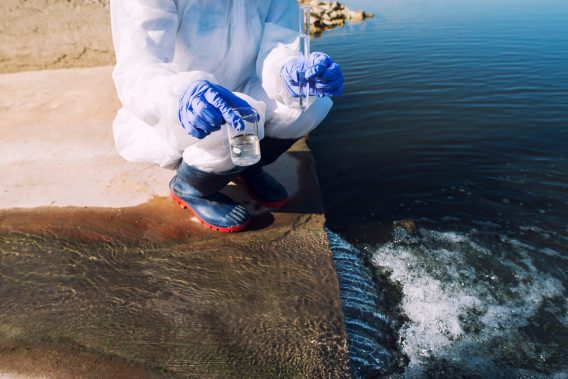Federal PFAS Testing Project Set for Private Wells Near Military Bases
Editors carefully fact-check all Consumer Notice, LLC content for accuracy and quality.
Consumer Notice, LLC has a stringent fact-checking process. It starts with our strict sourcing guidelines.
We only gather information from credible sources. This includes peer-reviewed medical journals, reputable media outlets, government reports, court records and interviews with qualified experts.

The U.S. Army and the Environmental Protection Agency have launched a joint initiative to test drinking water wells near military bases across the country for harmful PFAS chemicals.
Concerns that these “forever chemicals” from military bases may have spread to nearby drinking water wells spurred the project.
The national pilot program prioritizes nine Army installations, including bases in Alabama, California, Georgia, Kentucky, Tennessee, North Carolina and Oklahoma. The agencies may expand the program to more areas depending on the findings.
“PFAS pose significant risks to drinking water supplies and public health, which is why the EPA and the Army are testing water from wells in communities near Army installations to determine if these dangerous forever chemicals are polluting drinking water,” said David M. Uhlmann, EPA’s Assistant Administrator for Enforcement and Compliance Assurance.
“Members of the military, their families, and surrounding communities deserve access to clean, safe drinking water. EPA welcomes the opportunity to share our expertise and work with the Army on this important project, which will help advance EPA’s PFAS National Enforcement and Compliance Initiative.”
In April, the EPA set legally enforceable Maximum Contaminant Levels (MCLs) under the National Primary Drinking Water Regulation (NPDWR) for six PFAS chemicals in drinking water, including PFOA, PFOS, PFHxS, PFNA and HFPO-DA.
Contamination from Firefighting Foam At Military Bases
Testing of 12 private wells within a mile radius of Fort Liberty, North Carolina showed that four of them had PFAS contamination levels that exceeded NPDWR standards. According to Paul Humphrey of the U.S. Army Environmental Command, the chemicals came from aqueous film-forming foam, a type of firefighting foam. The contamination likely resulted from years of using this foam that contains harmful “forever chemicals.”
“The Army remains committed to taking care of our people in the communities in which we serve,” Garrison Commander Col. Chad Mixon told CityView North Carolina.
“We’ll remain responsible with this as the Army, in conjunction with our partners, Army Environmental Command. We’ll remain transparent. We’ll continue to get information.”
Getting Ahead of Forever Chemicals
PFAS contamination isn’t just a problem for military bases; it is also near factories, refineries and other places where these chemicals were used in manufacturing or firefighting foam. PFAS, or per- and polyfluoroalkyl substances, are long-lasting chemicals that persist in the environment and pose health risks to those exposed.
These “forever chemicals” are common in everyday items like non-stick cookware and water-resistant clothing. Because they don’t break down easily, they can remain in the environment for a long time.
As a result, contaminated drinking water may expose many people to PFAS.
Lawsuits related to PFAS contamination are on the rise, with claims connecting the chemical to drinking water contamination and serious health problems like kidney, liver and testicular cancer.
Legal actions also involve aqueous film-forming foam, alleging that first responders exposed to the foam have suffered negative health effects. AFFF lawsuits have named companies like BASF, DuPont, 3M Company and Tyco Fire Products as defendants.
In May, BASF Corporation, a chemical producer linked to PFAS, agreed to a $316.5 million settlement with several public water systems after PFAS was detected in their drinking water.
Editor Lindsay Donaldson contributed to this article.